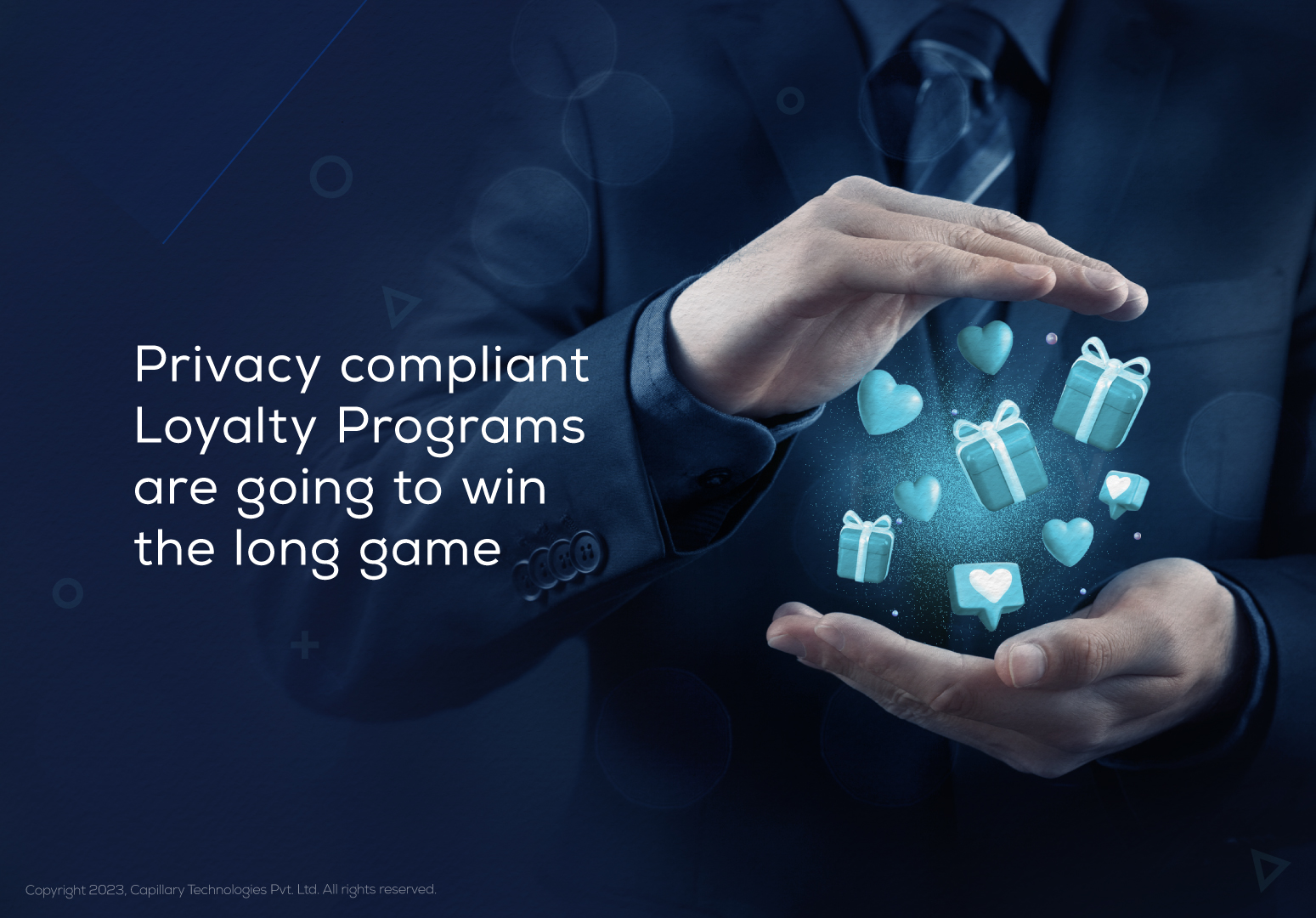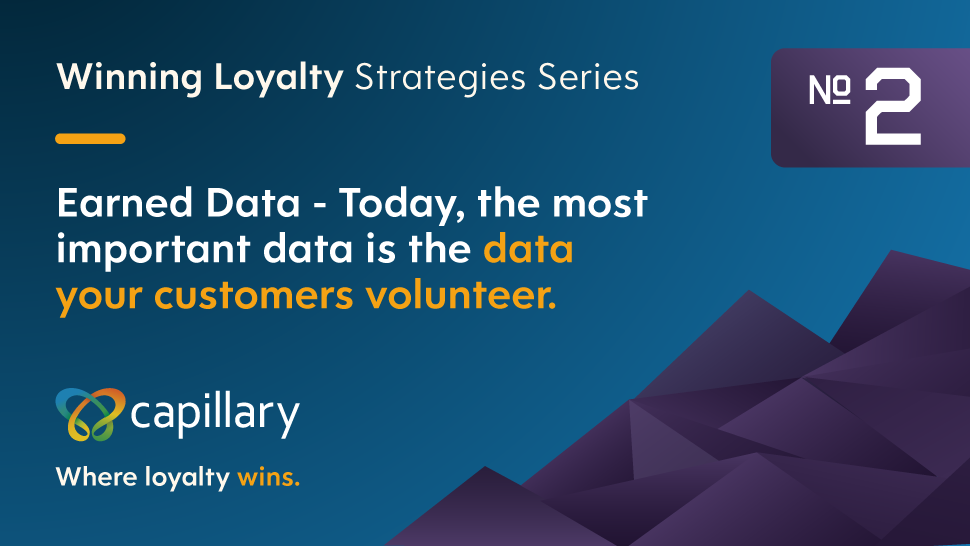- Design industry shaping loyalty programs
- Integrate easily and go live quicker
- Deliver hyper-personalized consumer experiences
Blue Rewards from Al Futtaim Group Shares Loyalty Success Stories and Evolution. Watch Podcast >
Capillary Announces 2nd Annual Captivate 2025 Summit: Transforming Loyalty Management with New AI Tech Read more >

Loyalty programs deliver personalized brand experiences to customers using the data they willingly share. This makes loyalty programs perhaps the most genuine customer engagement initiatives existing today. Traditionally the ability to collect customer data and access to it has been limited. Now, however, data handling has undergone a massive change, with digital ecosystems, data migration to the cloud and digital transformation initiatives.
With sensitive data readily available and easier to access, the threat of data breaches is severe and growing. We are in the first half of 2023 and major brands like Reddit, T-Mobile, MailChimp, PayPal, Twitter, Yum brands, and ChatGPT have already disclosed data breaches of sensitive user information.
With rising cyber attacks, consumers are wanting to keep their personal information to themselves. And for this reason, loyalty programs that respond with true privacy compliance are the ones that will win and keep customers.
The most widely recognised data privacy laws are Europe’s General Data Protection Regulation (GDPR) and the California Consumer Privacy Act (CCPA). The standards set by these two laws provide best practices for brands to follow as part of their digital marketing strategies.
The US laws have so far taken the ‘harms-prevention-based’ approach to privacy protection, looking to prevent harm in specific sectors. In contrast, the GDPR has adopted the broader ‘rights-based’ approach, where individuals effectively own their personal information, implying their legal right to control it, and decide who can use it.
In October 2022, CCPA was modified and updated with CPRA . CPRA adds ‘Sensitive Personal Information’ (SPI) as a new data category. And asks businesses to provide data security appropriate to the data type – which means offering greater protection to SPI. The law also adds four new consumer rights – the right to correction, the right to limit Sensitive Personal Information, the right to access and opt-out, and the right to data portability.
With this, the US laws too have moved closer to taking a ‘rights-based’ approach, and become more comprehensive in action. The new CCPA has come into effect since January 1, 2023.
Another aspect that invites regulations is the data ‘point-of-origin’. According to GDPR, consumer data for customers in the EU must be hosted on servers within the borders of the EU. Regulators are emphasizing data sovereignty and localization to ensure that user data stays close to home for its protection.
With most privacy laws, it’s not so much where your business is located as it is where your customers are located. When brands operate in multiple regions with different privacy laws, developing a cohesive loyalty program across all channels becomes increasingly challenging. In this instance, loyalty programs need to be ever mindful of where their members are, as this will determine the laws and regulations at play.
With the regulatory framework supporting more individual control, more consent and greater transparency, Apple and Google are updating their policies to enable the same.
As individuals control more of their own data and decide if and how they want to monetize it, loyalty models will need to adapt to accommodate these new rules.
With loyalty members sharing personal information, preferences, making payments online, and engaging with brands phygitally – a loyalty program can have hundreds of data points on each member. This makes it crucial to ensure that data is maintained in a manner that minimizes unwanted intrusion.
A good rule of thumb is to treat customer data like inventory. This helps to immediately arrive at the necessary practices for data management – how to gather it, data stocking, establishing data shelf-life and correcting pilferage.
Before you turn-on the data collection initiatives, there must be a clear understanding of –
2. Follow data minimization
Data minimization approach dictates that enterprises should limit the collection of personal information to what is directly relevant and necessary to accomplish a specified purpose. Look to retain data only for as long as is necessary to fulfill the purpose.
To evaluate which data is essential, conduct periodic data audits. Following minimization, enterprises can reduce their sensitive data footprint substantially.
3. Encrypt all sensitive member data
Consider data pseudonymization (as one of the practices recommended by GDPR). It is the processing of personal data in such a way that the data can no longer be attributed to an individual without using additional information.
Say, for example, removing a customer’s first and last name, and replacing it with randomly generated strings. The information is still useful, however, it is nearly impossible to link the identity of a user to this information. This greatly reduces the risk of identifiable information theft in the incident of data breaches and/or loss.
4. Create and publish a transparent data usage and privacy policy
Define and implement a clear data privacy policy and communicate it to all stakeholders. The policy should specify who is allowed to access the data and how. It should also clearly state how the data should and shouldn’t be used.
While businesses may look at privacy compliance as an added expense, brands can definitely consider it as an investment towards creating a significant competitive advantage. According to a 2020 Cisco report, for every dollar that companies invest in privacy, they see a $2.70 return. Investing in data privacy and security can earn you more than just a compliance certificate. Here’s how –
Businesses that factor privacy into their engagement initiatives will ‘hear back from their customers’ and build long-term trust.
Consumers are demanding a greater personalization of brand experience while also being increasingly protective of their personal information. This is where loyalty programs can offer a credible mid-path – for brands to start engaging with consumers more personally and offer true benefits based on consent.
Loyalty programs invite customer participation through opt-in and permission-based processes. Proper disclosures make it clear to members what data is being collected and how it will be managed. A loyalty program not only addresses breaches of privacy concerns, but it also helps build transparent relationships with customers and communicate with them on a personal and individual level.
The surest way to run a successful and fully-compliant loyalty program is to partner with an experienced loyalty provider like Capillary. Our privacy-first initiatives span the life cycle of enterprise data, and include steps in operations, infrastructure, and customer-facing practices.
“Capillary Tech reaches over a billion customers and clocks 5 billion + transactions annually. In our experience, customers respond to companies that treat their personal data as carefully as they do themselves.”
Having worked with 250+ international brands across 30 countries, the Capillary team is hands-on with the evolving regulatory landscape. We can work with your team to set up comprehensive data-privacy initiatives including Data discovery and Classification, Identity and Access Management, User Rights Management, Data Masking and Encryption, Data Loss Prevention (DLP), Database Activity Monitoring, Alert Prioritization and more.
If the ever-increasing demand for data privacy is making it harder for you to engage with customers, get in touch with us. Our team of experts can help build 1:1 engagement solutions that wholly meet regulations and ensure your customers continue trusting you with their valuable information.

December 7, 2024 | 4 Min Read
Preventing Loyalty fraud safeguards customer accounts and da

July 31, 2023 | 6 Min Read
With the evolving data privacy regulations landscape, enterp

August 22, 2023 | 4 Min Read
To replace the retargeting data lost to the demise of third-